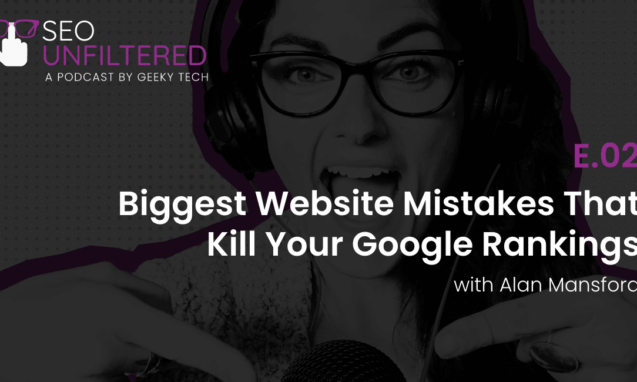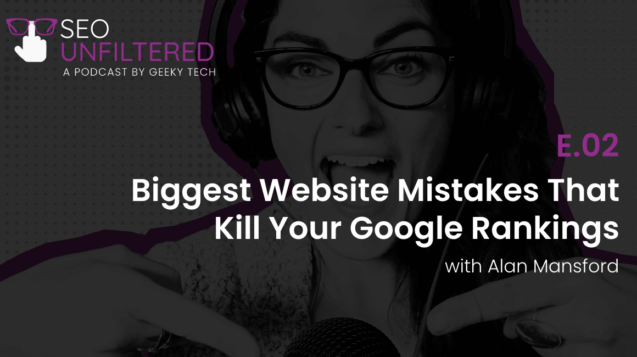So, you want to hire an expert to boost your rankings and increase your site visibility. But now you’re not sure where to turn. Do you spend your budget hiring an SEO specialist full time or do you look for an SEO agency and completely sidestep the HR swamp?

It’s a question we end up hearing a lot. Most of the time, it’s when a potential client wants us to convince them that going with an SEO agency (that would be us) gives them more bang for their buck.
And to be honest, we don’t really need to work that hard. We just need to show them:
- How much they’ll really spend by hiring someone in-house
- How much value they get when hiring a team vs. hiring one SEO employee
These conversations don’t get very far before we’ve shown marketing teams our value. And we’re not saying this to toot our own horns. It’s all down to maths. All (good) SEO agencies can make a similar argument.
It All Comes Down to Budget
The biggest constraint of any marketer is, of course, budget. We know that when you go searching for a solution to your SEO woes, you’re not the only one making decisions. There are executives and stakeholders to please, quarterly projections to meet, and egos to soothe (we assume).
But your budget isn’t just about the money you fork out. It’s also about your return on investment. Spending a little more up front for exponential returns makes a lot more financial sense than penny pinching your way to a temporary solution that may not even work.
All that to say: yes, 100%, hiring an SEO agency can seem more expensive than adding an employee to the company roster. We’re not going to lie about it. And of course, there are definite perks to keeping your SEO team under the same roof.
But before you close the book on this debate, let’s proceed with the money talk. It might just make you see things differently.
The Basic Numbers
US SEO Agency 
Average Monthly Retainer:
$2,500–$5,000
Average yearly payout:
$30,000–$60,000
US In-House SEO Team 
Average monthly salary:
Entry level: $3,750
Mid-level: $5,875
Senior: $6,875
Average yearly payout:
$45,000–$82,500
UK SEO Agency
Average Monthly Retainer:
£1,200–£9,000
Average yearly payout:
£14,400–£108,000
UK In-House SEO Team
Average monthly salary:
Entry level: £2,292
Mid-level: £2,708
Senior: £3,750
Average yearly payout:
£27,504–£45,000
Canada SEO Agency
Average Monthly Retainer:
$3000–$5000
Average yearly payout:
$36,000–$60,000
Canada In-House SEO Team
Average monthly salary:
Entry level: $2,170
Mid-level: $3,060
Senior: $4,930
Average yearly payout:
$26,040–$59,160
The word to look out for here is average. These numbers are pulled from various sources like recruitment websites, so please don’t start complaining to your SEO agency that they’re charging you too much. The truth is, you can also find agencies offering monthly retainer fees for as little as $500 a month or as much as $50,000 a month.
If you’re eyeballing an SEO agency that’s promising to help you reach page one, position one of Google at a measly 500/month rate, buyer beware: they are scamming you, whether they know it or not.
It’s just a matter of fact that agencies have overhead. They have employee salaries to pay. They have tools that need updating and subscriptions that need subscriptioning. And, let’s face it, if you can’t afford to spend more than 500 a month in agency fees, then you certainly won’t find any worthy SEO specialist who’ll accept a paycheque that low.
The only way a legitimate agency can feasibly charge that low of a retainer fee is if they:
- Don’t have that many years of experience
- Are an agency of one or two people
In either case, you want to steer clear of budget friendly SEO companies because you’re looking for long-term results. The whole point of hiring a team of SEO experts is so they can hit the ground running using their industry knowledge and experience. Even sticking to the low end of these national averages is pushing your luck.
If you have no choice but to think economically, do your homework. Read those company case studies, analyse their free reviews with a discerning eye, and find testimonials online before you sign on the dotted line.
What the Numbers Don’t Tell You: Different Price Points
Most SEO companies offer three or four tiers of service, but all of them cover the fundamentals of SEO: we’re talking keyword strategy, competitor benchmarking, page optimisation, content, backlinks, reporting, etc. The tiers usually go a little something like £2,000, £5000, and £10,000 a month, or, if you’re thinking about your budget, £1,000, £3,000, £5,000 a month.
The more you pay, the more resources the team can allocate to your campaign, which means the faster you’ll see results. You’re essentially paying for a multi-headed monster that can attack your campaign from all angles rather than a single employee who, due to time constraints, will have to focus on one or two things at a time.
What the Numbers Don’t Tell You: The Cost of Hiring
Of course, we’re missing a huge piece of the puzzle, and that is, what it actually costs to recruit, hire, train, and keep your future employee.
It’s hard to slap a general number next to these costs because it varies from country to country. But let’s take a look at what those hidden costs actually are:
- Recruitment (headhunters,job boards/fairs, interviews, background checks)
- Onboarding (office equipment, IT costs, training/shadowing)
- Taxes
- Benefits (pension, medical insurance, dental insurance)
Sources like Indeed state that you’re spending at least $16,000 USD before your new employee has even spent a full day behind their desk. Some of these costs come straight out of your pocket, while others are a result of loss of productivity.
So there’s that. Why don’t we go ahead and slap another $16,000 onto your single employee’s base salary?
But, maybe we’re being too harsh. Maybe our bias is showing a little bit. There are, of course, pros and cons to hiring in-house and an agency.
So let’s take a look at those now.
Hiring an In-House SEO Specialist: Pros & Cons
- Will understand your business more than any agency will.
- Can put out fires faster than an external agency.
- Focused solely on your company’s website.
- Can collaborate better with other teams, such as public relations, web development, and sales.
- Can develop in-house tools that you will own forever.
- If you ever decide to expand the SEO team, the departmental infrastructure is already there.
- Really skilled SEO specialists won’t accept a base salary.
- Really skilled SEO specialists won’t accept a base salary.
- If you can only afford to hire an entry-level specialist, you’re also paying for the employee’s professional development. Expect limited results in the first year.
- SEO capabilities are more general than specialist, as they won’t have the time or resources to cultivate a deeper skill set.
- Budget limitations may prevent the employee from accessing or developing the best SEO tools.
- Attention will be spread thin to accommodate all aspects of SEO, which could affect their performance and attention to detail.
- Professional-level access to various SEO tools, such as Majestic and News Wire comes with ongoing costs.
- Building out in-house SEO tools also takes time and money.
Hiring fresh blood to join your team is great if you’re a startup and you fully expect each team member to grow with your company. And, if you don’t mind your employee’s SEO skills evolving over time, then it’s probably the most affordable and logical option for your company.
Plus, it’s quite handy to have your SEO guru sitting next to you who can quickly fix any little problem you bring to them.
But keeping your SEO under your own roof does get expensive, and you’ll have to accept the fact that hiring just one employee will slow down your results speed.
Hiring an External SEO Agency: Pros & Cons
- The skills, resources, and staff to provide end-to-end SEO services that a single SEO employee can’t feasibly match.
- Access to various custom-made SEO tools that aren’t available to the public.
- Can present companies with quantifiable proof that their methods are effective at achieving results.
- Work starts instantly. No internal hiring process or training required.
- You’ll have 10+ experts optimising your site on any given day.
- No paid sick leave. No benefits payouts.
- Requires a great deal of trust, so finding a team that you like and think is trustworthy is crucial.
- Juggling many different clients at one time, so communication can be slow if you don’t find the right team.
- Some SEO agencies (not us) charge hidden fees.
- Typically higher upfront costs and retainer fees compared to an entry-or-mid-level in-house SEO specialist.
A great SEO agency has amassed a team of specialists who have a combined decades’ worth of experience. You’re less burdened by time constraints, although you may have to wait an hour or two (or more depending on the agency’s response time) before you can get your questions answered.
Although you may be paying higher monthly costs, your return on investment will be much higher.
Final Thoughts
If we’re talking about value for money, hiring an SEO agency makes the most financial sense. However, you don’t necessarily need to take on a whole agency if your company is just starting out and you don’t have that much budget to play with.
On the other hand, if you’re a world-changing tech company with a marketing team behind you and a clear target customer, and you’re looking for more visibility, more leads, and more sales, an SEO agency is the better choice.
What the Numbers Don’t Tell You: Different Price Points
Most SEO companies offer three or four tiers of service, but all of them cover the fundamentals of SEO: we’re talking keyword strategy, competitor benchmarking, page optimisation, content, backlinks, reporting, etc. The tiers usually go a little something like £2,000, £5000, and £10,000 a month, or, if you’re thinking about your budget, £1,000, £3,000, £5,000 a month.
The more you pay, the more resources the team can allocate to your campaign, which means the faster you’ll see results. You’re essentially paying for a multi-headed monster that can attack your campaign from all angles rather than a single employee who, due to time constraints, will have to focus on one or two things at a time.


















